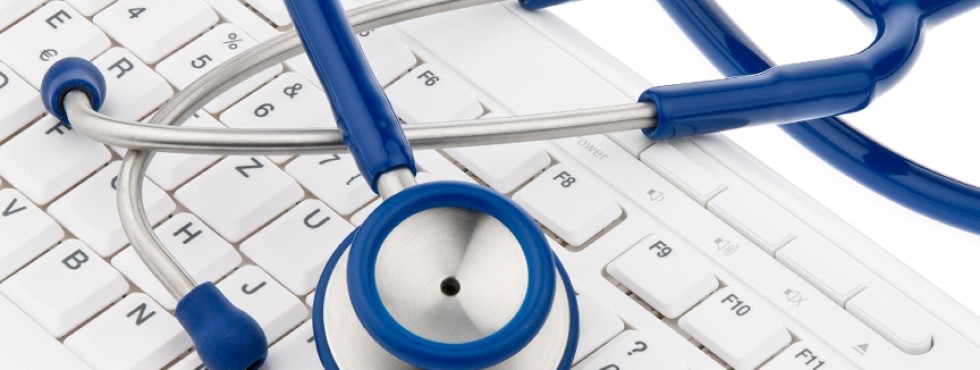How to Get Started in Medical Billing: A Step-by-Step Guide to Launch Your Healthcare Billing Career
Embarking on a career in medical billing can be a lucrative and fulfilling choice for those interested in healthcare, finance, and administrative work. As the backbone of healthcare revenue cycle management, medical billers play a vital role in ensuring healthcare providers get paid accurately and promptly. Whether you’re a recent graduate,switching careers,or seeking a flexible work environment,this comprehensive guide will walk you through the essential steps to kickstart your journey in medical billing.
Introduction
The healthcare industry is growing rapidly, and with it, the demand for skilled medical billers. This profession offers adaptability, competitive pay, and the opportunity to work remotely or in medical offices. But where do you start? Understanding the basics, acquiring the right training, and gaining practical experience are key to building a accomplished healthcare billing career.Let’s explore each step to help you become a proficient medical billing specialist.
Why Choose a Career in Medical Billing?
- High Demand: Healthcare providers rely heavily on medical billers to manage claims and billing processes.
- Flexibility: Many medical billers work remotely, providing work-life balance and flexibility.
- Good Income Potential: entry-level medical billing salaries are competitive, with opportunities for growth.
- Stable Industry: Healthcare remains essential regardless of economic fluctuations.
- Opportunities for Advancement: With experience, you can move into positions like billing supervisor, coding specialist, or healthcare administrator.
Step 1: Understand the Medical Billing Industry
Before diving into training and certification, it’s essential to understand what medical billing entails. Medical billers process claims to insurance companies, verify patient information, ensure accurate coding, and follow up on unpaid claims. Familiarize yourself with key terms such as:
- Claims Processing: Submitting bills to insurance companies.
- Medical Coding: Using ICD-10, CPT, and HCPCS codes for diagnoses and procedures.
- Insurance Payers: Medicare, Medicaid, private insurers.
- Billing Software: Medical billing management systems.
Understanding the healthcare revenue cycle will prepare you for the technical aspects of the job and help you communicate effectively with healthcare providers and insurance companies.
Step 2: Obtain Necessary Education and Training
Educational Requirements
While some entry-level roles may accept on-the-job training, having a relevant educational background improves your job prospects. Consider pursuing:
- Certificate Programs: short-term courses in medical billing and coding (often 6 months).
- Associate Degree: In Health Information Technology, Health Management, or related fields.
Training Topics Covered
- Medical terminology
- Medical coding (ICD-10,CPT,HCPCS)
- Billing processes and procedures
- Insurance policies and reimbursement
- Software and electronic health records (EHRs)
Look for programs accredited by reputable organizations such as the American Health Information Management Association (AHIMA) or the American Academy of Professional Coders (AAPC) to ensure quality education.
Step 3: Gain Certification and Credentialing
Popular Certifications for Medical Billers
| Certification | Issuing institution | Benefits |
|---|---|---|
| Certified Professional Biller (CPB) | American Academy of Professional Coders (AAPC) | Recognized credential, enhances job prospects |
| Certified Medical Reimbursement Specialist (CMRS) | American Medical Billing Association (AMBA) | Shows expertise in billing and reimbursement |
| Certified Revenue Cycle Specialist (CRCS) | American Revenue Cycle Institute | Focuses on entire revenue cycle management |
Why Certification Matters
While not always mandatory, certification demonstrates your competency, commitment, and professionalism. It can lead to better job options, higher salaries, and career advancement opportunities.
Step 4: Develop Technical skills and Familiarize with Software
Proficiency in medical billing software is critical. Popular billing programs include:
- NextGen Healthcare
- AdvancedMD
- Kareo
- Medical Office Online
hands-on experience is invaluable-consider internships, apprenticeships, or simulated practice environments to build your technical skills. Additionally,stay updated with evolving billing software and coding standards to remain competitive.
Step 5: Build Practical Experience
Internships and Entry-Level jobs
Look for internships or assistant roles in healthcare facilities,billing companies,or medical offices. Practical experience helps hone your skills and builds your resume.
Volunteer Opportunities
Volunteering at local clinics or health outreach programs can provide initial exposure and networking opportunities in the healthcare industry.
Step 6: Prepare and Apply for Jobs
craft a professional resume highlighting your education, certifications, and any practical experience. Tailor your submission to each position, emphasizing your technical skills and understanding of billing processes.
Utilize job boards such as Indeed, Glassdoor, and specialized healthcare recruiting sites to find openings in your area or remote positions suitable for beginners.
Additional Practical Tips for Career Success
- Stay Informed: Keep up with changes in healthcare laws, coding updates, and billing regulations.
- networking: Join professional associations like AAPC or AHIMA for resources and connections.
- Develop Soft Skills: attention to detail, communication, organizational skills, and customer service are essential.
- Continuing Education: Pursue ongoing training and advanced certifications to increase earning potential.
Case Study: From Novice to Successful Medical Biller
Jennifer started her journey by enrolling in a 6-month medical billing certification program.She earned her CPB credential, gained hands-on experience through an internship, and built a professional network.Within a year, Jennifer secured a remote medical billing position earning above industry average. Her story illustrates how dedication, education, and practical experience can fast-track your healthcare billing career.
Conclusion
Getting started in medical billing is a rewarding venture that combines healthcare knowledge with administrative expertise. By understanding the industry, obtaining proper education and certifications, acquiring practical experience, and actively job hunting, you can launch a successful healthcare billing career. The demand for qualified medical billers continues to grow, making it an excellent choice for those seeking stability, growth, and flexibility in the healthcare sector. Take the first step today, and open the door to a promising career in medical billing!



